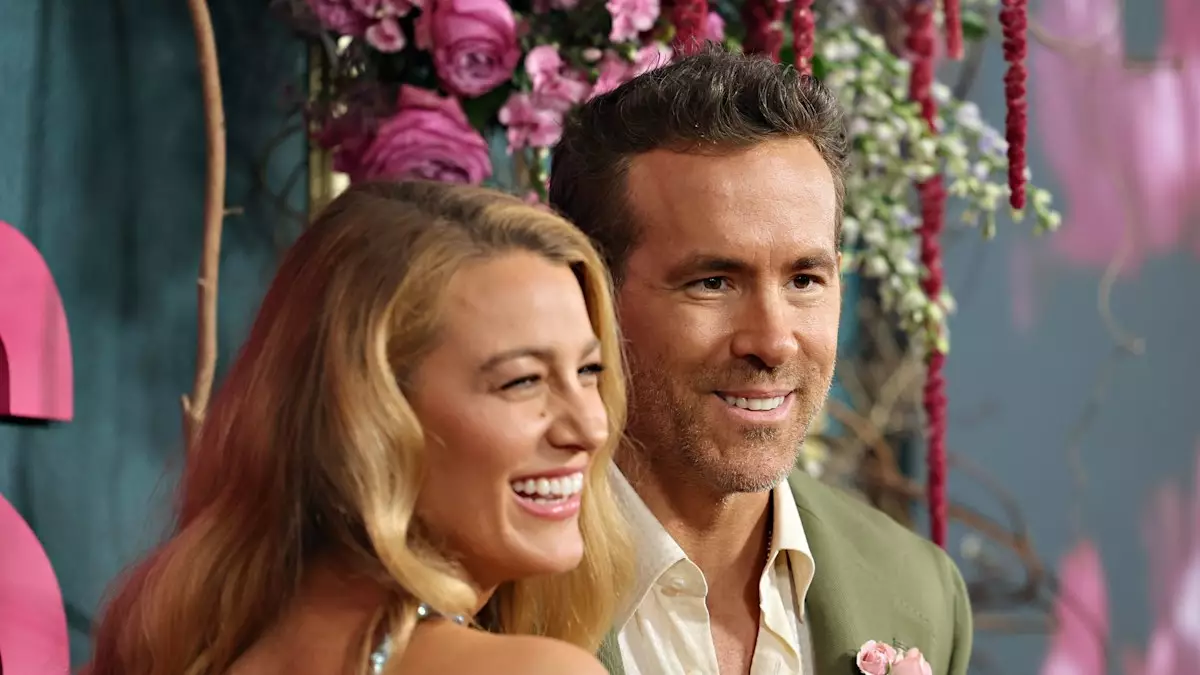In the fast-paced world of Hollywood, the intricate interplay between personal lives and professional endeavors frequently attracts public scrutiny. The recent legal battle initiated by Blake Lively against Justin Baldoni, her co-star and director on “It Ends With Us,” unveils a web of personal grievances intertwined with broader workplace issues, notably allegations of sexual misconduct. Amidst this controversy, Ryan Reynolds, Lively’s husband, has taken a distinctive approach, channeling the spotlight toward charitable endeavors instead of directly engaging with the drama surrounding his wife.
Unpacking the Lawsuit: Allegations and Implications
The crux of Lively’s lawsuit revolves around serious allegations against Baldoni, which include attempts to tarnish her reputation following claims of inappropriate behavior on set. Such claims are not only damaging on a personal level for Lively but also serve as a grim reminder of the pervasive culture of harassment within many workplaces, including the entertainment industry. The implications of these allegations extend beyond individual experiences; they highlight systemic issues that necessitate accountability and reform.
Lively’s courage in bringing her grievances to light underscores the importance of speaking out against misconduct. Yet, the involvement of Reynolds—who was also mentioned in the lawsuit—adds layers of complexity to the narrative. Their joint presence in a meeting intended to address these serious allegations indicates not just familial support but also an entanglement in the multifaceted power dynamics typical of Hollywood productions.
While the lawsuit presents a challenging narrative for the couple, Reynolds has strategically shifted the focus from scandal to philanthropy. By promoting donations for SickKids, a foundation that supports children’s hospitals, he attempts to foster a positive image amid adversity. This move could be perceived as a coping mechanism or a means to retain public goodwill during a turbulent period.
Reynolds’ choice to don his Deadpool costume once again, alongside his daughter, symbolizes a blending of personal and public personas, which is emblematic of his social media presence. The intention behind his philanthropic push is clear: to redirect attention toward a cause that resonates deeply with audiences, nurturing an image of compassion and dedication to community welfare.
In the wake of the lawsuit, Lively has received an outpouring of support from various quarters, including her former co-stars and the author of “It Ends With Us,” Colleen Hoover. This communal backing highlights the solidarity within the industry, particularly among women who have faced similar challenges. Such alliances are vital in creating safe spaces for dialogue and healing, fostering an environment where individuals feel empowered to voice their experiences without fear of retribution.
However, the timing and nature of this support are critical to analyze. One could argue that while public backing is essential, it also risks overshadowing the individual’s experience by placing collective narratives above personal grievances. This dynamic raises questions about the balance between solidarity and the need for individual agency in addressing misconduct.
The Broader Conversation on Workplace Ethics
Ultimately, the unfolding events surrounding Lively and Baldoni’s legal dispute encapsulate a broader conversation about workplace ethics and the responsibilities of those in positions of power. The entertainment industry, like many others, is grappling with the ramifications of a #MeToo culture that demands accountability. This incident, therefore, serves as a poignant case study in the ongoing struggle for justice and equality within professional environments.
As Lively’s lawsuit progresses and Reynolds continues to advocate for charitable causes, it is crucial to remain vigilant about the underlying issues at play. The public’s fascination with their personal lives can sometimes dilute the gravity of the situations they confront. Advocating for systemic change requires not just solidarity in words but actionable steps toward creating safer environments for all.
The intersection of celebrity, advocacy, and personal challenges presents a unique opportunity for reflection on societal values and responsibilities. The unfolding narrative of Blake Lively, Ryan Reynolds, and Justin Baldoni is not merely a sensational headline; it serves as a crucial reminder of the complexities and challenges that individuals face in both public and private spheres.


Leave a Reply